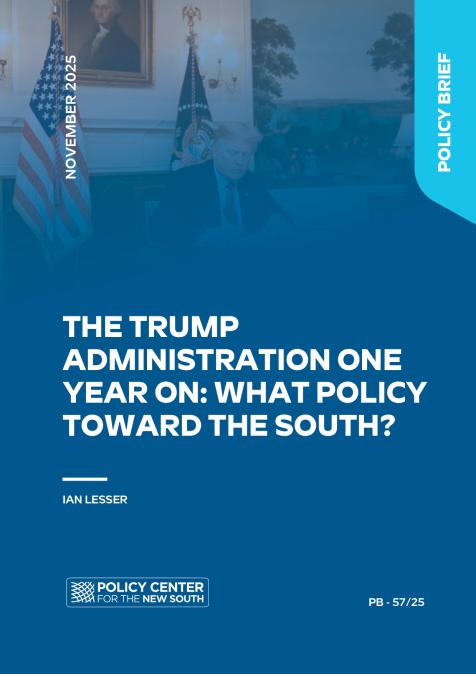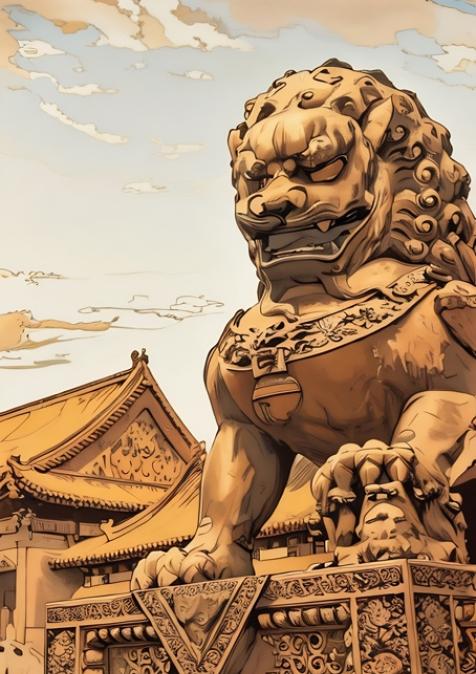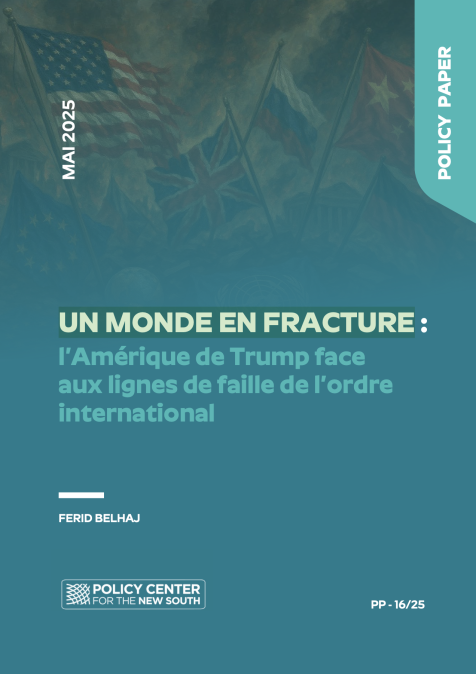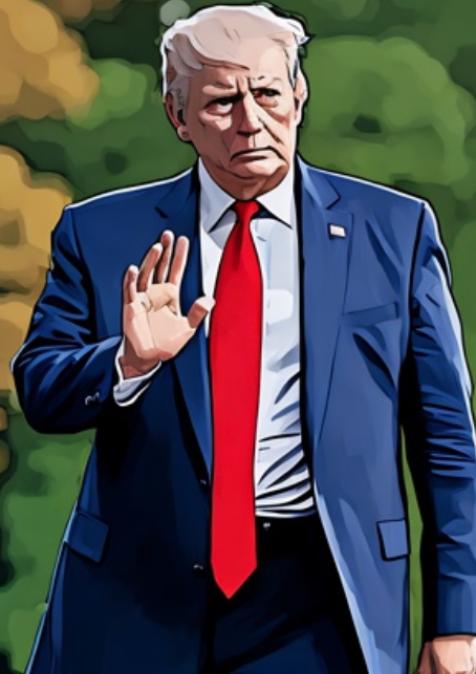Publications /
Opinion
On February 3, 2003, Colin Powell, U.S. President George Bush’s Secretary of State, informed the United Nations Security Council about secret information collected by the U.S. about Iraq’s weapons of mass destructions. “Every statement I make today is backed up by sources, solid sources. These are not assertions,” he said. There was “no doubt in my mind” that Saddam Hussein had a nuclear weapons program, and the invasion of Iraq was urgent and justified, because “the gravity of this moment is matched by the gravity of the threat that Iraq’s weapons of mass destruction pose to the world”.
But the evidence turned out to be manipulated. U.S. President Donald Trump is now using similar methods, escalating a crisis based on dubious information about the origin of COVID-19. The virus is believed to have originated from a seafood market in Wuhan, China, possibly in December 2019. Most of the first 41 patients worked at or were frequent visitors to the market. This seemed clear until Trump sought to deflect his own mismanagement of the crisis, blaming Beijing for the outbreak. He insisted the source of the virus was Chinese scientists, who lost control while experimenting in the Wuhan Institute of Virology. “It could have been stopped on the spot”, Trump said.
The U.S. president claimed he had seen evidence giving him “a high degree of confidence” that the virus was manmade. Mike Pompeo, his Secretary of State, who has maintained an aggressive line of attack against China’s handling of the virus, reminded the nation that “China has a history of infecting the world and running substandard laboratories”. Early Chinese efforts to downplay the coronavirus were “a classic communist disinformation effort”, and Chinese medical professionals who tried to speak out were silenced. Chris Cillizza, a CNN editor, said Trump “needs someone to blame for the virus—and ‘Mother Nature’ isn’t cutting it. So he turns to China—and decided that they made this in a lab”.
The Trump administration, facing nearly 40 million unemployed citizens and tens of thousands of COVID-19 deaths, is desperately trying to blame others for the catastrophe, which could force Trump to pack his bags after the presidential elections in November. His main target in addition to China is the World Health Organization (WHO). Washington has suspended financial support for the WHO because it seemed insufficiently skeptical about China’s lack of transparency in the early phase of the virus outbreak.
‘Epaulettes, Never Stethoscopes’
That this pandemic occurred at all, argues Oxford University vice-chancellor Louise Richardson, in Foreign Affairs, “reflects a failure of international institutions and national governments too. We have had warnings. The SARS epidemic of 2002-04 was believed to have begun in an Asian wet market. The current coronavirus is believed to have begun in a wet market in Wuhan, and reports are that as China returns to normal wet markets are again emerging in the poorest districts of some Chinese cities. The Ebola crisis should have served as a warning too, but that involved people dying far away from the wealthy streets of the West and the lessons we ignored.” There was no shortage of people pointing to our vulnerability to a pandemic, recalled Professor Richardson, “and they were not all obscure academics; just see Bill Gates’ TED (Technology Entertainment Design) talk of 2015 in which he contrasted the vast sums spent on nuclear deterrence to the paltry sums spend on pandemic preparedness. Governments have preferred to see security in military terms, epaulettes, never stethoscopes”.
A global outbreak was, as Bill Gates predicted, only a question of time. “In 1912, German veterinarians puzzled over the case of a feverish cat with an enormous swollen belly”, reported David Cyranoski in Nature (May 4). “That now is thought to be the first reported example of the debilitating power of a coronavirus. Veterinarians didn’t know it at the time, but coronaviruses were also giving chickens bronchitis, and pigs an intestinal disease that killed almost every piglet under two weeks old. The link between these pathogens remained hidden until the 1960s, when researchers in the United Kingdom and the United States isolated two viruses with crown-like structures causing common colds in humans. Scientists soon noticed that the viruses identified in sick animals had the same bristly structure, studded with spiky protein protrusions. Under electron microscopes the viruses resembled the solar corona, which led researchers in 1968 to coin the term coronaviruses for the entire group”.
‘A Few Hundred Thousand Bucks’
The Nature article continued: “It was a family of dynamic killers: dog coronaviruses could harm cats, the cat coronavirus could ravage pig intestines. Researchers thought that coronaviruses caused only mild symptoms in humans, until the outbreak of severe acute respiratory syndrome (SARS) in 2003 revealed how easily these versatile viruses could kill people”.
With the current coronavirus outbreak, reality has caught up with science Christian Drosten, director of the Institute of Virology at the Charité Hospital in Berlin was alarmed and not convinced that the virus appeared at the Wuhan seafood wholesale market, but was “more likely to have started where the animal—the intermediate host—was bred”. Drosten told The Guardian: “There is an interesting piece of information from the old SARS literature. That virus was found in civet cats, but also in raccoon dogs—something the media overlooked. Raccoon dogs are a massive industry in China, where they are bred on farms and caught in the wild for their fur. If somebody gave me a few hundred thousand bucks and free access to China to find the source of the virus I would look in places where raccoon dogs are bred”.
Camels May be Involved
Since it may take months or years before vaccines may be available, Drosten does not rule out another coronavirus pandemic. “After the first Ebola outbreak in 1976 people thought it would never come back. It took less than 20 years to do so”. To understand that threat, says Drosten, “we have to study how the Middle East Respiratory Syndrome is evolving in camels in the Middle East”.
The opinions expressed in this article belong to the author.









